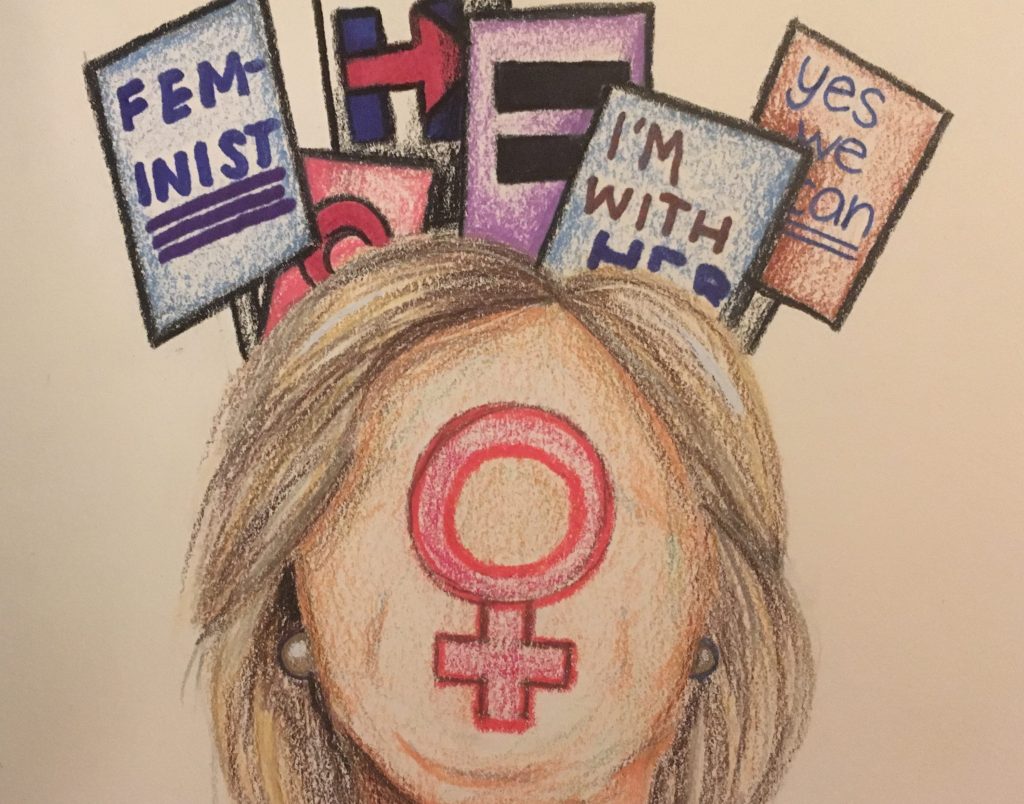On August 20, 1920 women were given the right to vote. Dorothy Rodham, mother of Hillary Clinton, was born on June 4, 1919, into a country where women were still unable to vote. Mrs. Rodham dropped out of high school, ran away from home and became a housekeeper for $3.00 a week– at the age of fourteen. Constant encouragement from the family she stayed with eventually pushed her to return to high school. After visiting her mother who had left her under the control of her grandparents, Dorothy was persuaded to move back to Chicago in anticipation of a college tuition funded by her mother’s new husband. Instead of attending Northwestern, as her mother had all but promised, Dorothy again found herself working as a housekeeper. Eventually she found herself employed as a secretary, married to a salesman, and a mother of three children–because “that is what women do.” Dorothy never attended college.
As portrayed here, the common image of women is that they must take care of the home, be mothers and wives, and nothing more. This view limits how the powers, qualities and potentials of women are perceived. The true beauty of a woman is found in all the capabilities, intelligence and independence that is held within her. When looking at a woman merely as a wife and mother and housekeeper, much is missed in the depth of a woman’s complex characteristics and nuances. Feminism is the fight and idea that women should have equality in both rights and opportunities. During the time of Mrs. Rodham, many shared this view of women as not only incompetent in terms of politics and intellect in comparison to men, but also as mere objects to benefit the life of men. Even in the 1960s, women were unable to own a credit card, serve on a jury, or have an equal opportunity to receive an Ivy League education.
Hillary Clinton was first abandoned by her parents, then later raised by a mother who had been unable to go to college and discouraged Hilary from pursuing a higher education. Despite this seemingly adverse history, Mrs. Rodham sought to instill in her children the courage to stand up for themselves and to never give up. When Hillary was a freshman at Wellesley, she struggled to keep up with the tough academic pace; her mother told her, “You can’t quit…you’ve got to see through what you’ve started.” And Hillary never looked back
Soon after graduating from Yale Law School, Hillary Clinton took a job working with incarcerated teenagers and disabled children. She later fought to give health care reform to children, and among other accomplishments, she stood in front of the U.N. in Beijing, and said “women’s rights are humans rights.” Hillary Clinton gives all of herself to benefit the world around her, instead of waiting on a man to take action, and she didn’t limit her advocacy to issues facing women.
Mrs. Clinton has experienced successes and failures throughout her career, as any great politician does. She has defied all the prejudices of women, as she is a mother, a college graduate, a lawyer, and a politician. Hillary is a symbol of hope for all women to believe in themselves to accomplish their dreams. She empowers others to take action, work hard, and to achieve their dreams, because women are just as capable as men. In this period of feminism, people are fighting for equal rights and opportunities, regardless of gender. A Clinton victory in this year’s election would have served as a testament to the age-old fight for equality. Although Hillary has not “shattered that highest and hardest glass ceiling,” she is quick to add that “someday, someone will.” To feminists, this should not be seen as a failure; this should feed the fire that lights the feminist cause and, more importantly, gives all Americans a reason to step back and reevaluate their position in this nation.
Phoebe Prinz
staff writer
Graphics: Maraea Garcia

